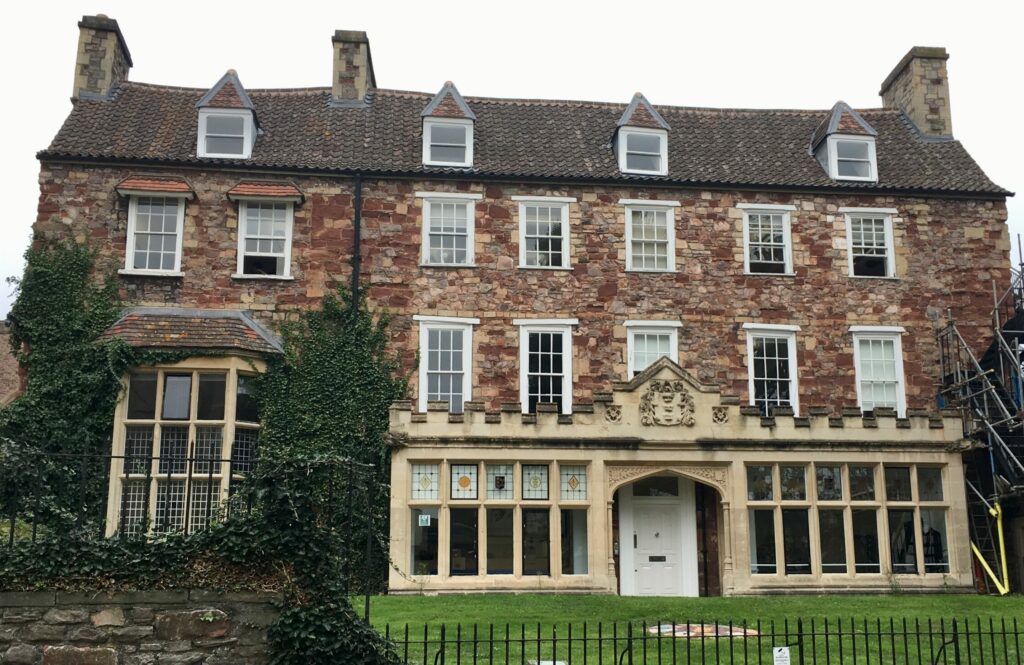Seeking God in the Liberal Arts, Then, Now, and Always
by Lindsey Hyland, Boethius Fellow
It is the goal of the liberal arts to free the human person to be all that he is made to be. Again, that is all that he was made to be. With Christian eyes, we can see that God made man and made him with a purpose to fulfill. Our lives seek a valuable end: unification with our Maker in heaven, and yet, how strange that the liberal arts, which free a man to do precisely what God made him for, were formulated and first practiced in a pre-Christian world. A world Pre-Christian, but in every way preparatory for Christianity. Certainly, we must acknowledge that there was a time in which Christ had not yet come to earth and man’s faith in God could not conceive of the role Jesus would play in the grand story of salvation within which we live. But even then, was there a day when man did not need salvation? Adam and Eve act as the prelude to the great story of salvation that set in motion God’s quest to reclaim man back to Himself. It was no secret to the Jews that salvation was, in fact, coming. The person of Jesus Christ may have been a surprise, but only to certain extent. The Jewish people knew He would be a king in the line of David, they knew He would come from Bethlehem, and they even knew He would be the fruit of a virgin. The Old Testament God-fearers were Christians-in-the-making, contributing to the formation of the grand story altogether.
Meanwhile, we see another thread of Christian preparation sprouting among the Gentiles. Those outside the People of Israel may not have had the blessing of close divine guidance—no column cloud or the parting of the sea showed the ancient Gentiles the strength of God’s arm—but they too, were preparing for the glorious second half of the salvation story to unfold. From the ancient Greeks sprung the intellectual spine of Christian faith. If the Israelites were the heart of this story, waiting for Christ with undying hope, then the Greeks were the head, assenting to His existence and man’s need for Him by way of reason.
 Here stands the interesting interlacing of the ancient liberal arts tradition and Christianity that was only later fulfilled in history. Cathedral schools and universities in the Middle Ages showcased the fruit of liberal arts study to be a mind open to theology thereafter. This development in the Middle Ages is a flash forward to the projection of the liberal arts upon placing their search for truth in the context of the Truth Himself. This was the enlightening path built upon an intellectual tradition in place and practiced before God would take on human flesh. The individuated liberal arts seem to have prepared the mind for the miraculous climax of the grand story of our salvation.
Here stands the interesting interlacing of the ancient liberal arts tradition and Christianity that was only later fulfilled in history. Cathedral schools and universities in the Middle Ages showcased the fruit of liberal arts study to be a mind open to theology thereafter. This development in the Middle Ages is a flash forward to the projection of the liberal arts upon placing their search for truth in the context of the Truth Himself. This was the enlightening path built upon an intellectual tradition in place and practiced before God would take on human flesh. The individuated liberal arts seem to have prepared the mind for the miraculous climax of the grand story of our salvation.
Plato is a strong example of this mental preparation. Four hundred years before Christ’s coming, Plato imparted the idea that man is both physical and spiritual; a body animated by an invisible form. Plato, then, taught Aristotle whose reason based proofs of God’s existence would influence one of the greatest medieval theologians to reconcile this ancient logic with the second half of the salvation story—the part that the ancients had not witnessed.
My grandfather taught me that if you stop learning, you are dead; a little piece of wisdom he borrowed from Socrates. Indeed, man’s nature of growth and change makes it evident that in fact, we are learning our whole lives long. That is why the liberal arts will never go out of style. From predating Christ—the pinnacle of their own study—to our continued discovery of the world today, the liberal arts are tools that equip man’s intellect to discover what he is capable of knowing and let him respond the the world as he comes to know it ever more clearly. With eyes wide open, the liberal arts help us to see the history we have walked in the grand story of salvation that gives meaning to our own place and time. The age-old story of salvation is the great backdrop to all that we come to discover and unites us to the intellectual tradition that facilitates such discovery.
